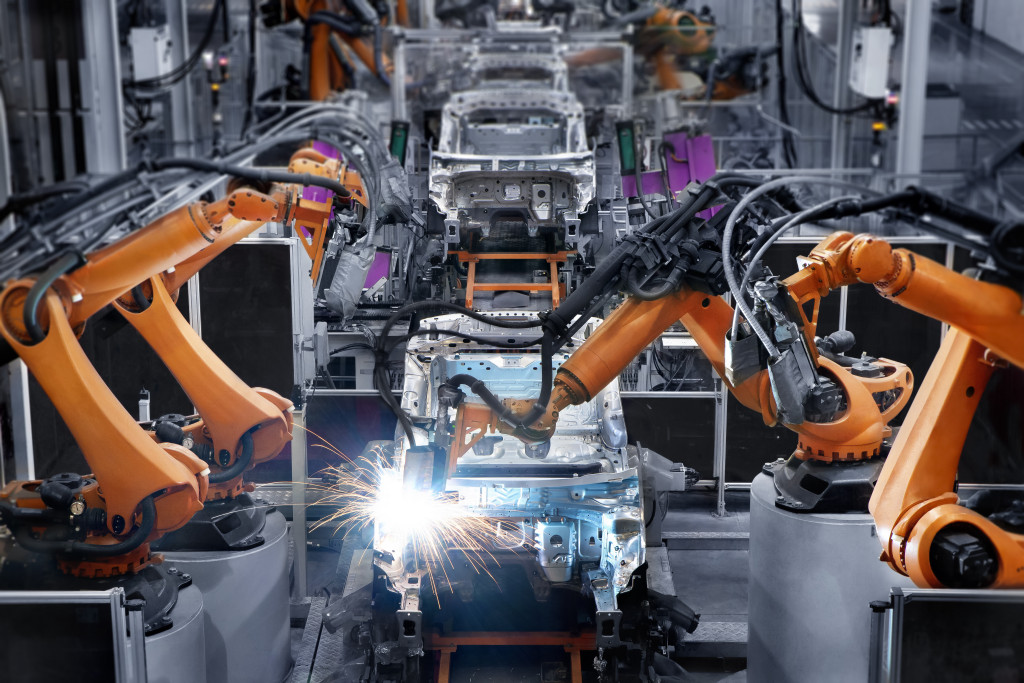• Employers must comply with local labor laws and industry regulations when hiring staff or independent contractors.
• It is essential to protect intellectual property rights by filing the required documents with the right authorities.
• Environmental regulations should be followed to remain compliant with local laws and protect the environment.
• Safety protocols must be adhered to, including state and federal regulations as well as industry-specific ones.
• Companies should develop strong customer service policies to prevent legal issues from arising in the first place.
As a business owner, you will likely encounter several legal matters when running your manufacturing business. It is essential to be aware of the most common legal issues and have a plan in place for how to approach them. In this blog post, you’ll learn about legal matters that you may come across in the course of running your manufacturing business:
Employment Law Issues
One of the first legal matters you might encounter as a business owner is related to employment laws. This can include anything from ensuring that employees are treated fairly and within the scope of labor laws to making sure you’re paying employees correctly and adhering to minimum wage laws. It’s essential to make sure you understand local labor laws and industry regulations before hiring any staff or independent contractors.
Intellectual Property Rights
Manufacturing businesses often deal with intellectual property rights such as copyrights, trademarks, and patents. If someone uses your products or services without permission, it can be considered an infringement on your intellectual property rights. You should ensure that your products are adequately protected by filing the appropriate documents with the U.S. Copyright Office or another governing body. Additionally, you must educate yourself on any potential infringement issues to know how to respond if needed.
Environmental Regulations
Another common issue for manufacturing businesses is environmental regulations. Depending on where your company is located and what type of products or services you offer, specific environmental regulations may need to be followed for your business to remain compliant with local laws and regulations. Not only do these regulations help protect our environment, but they also ensure that companies like yours continue operating legally and ethically.
Safety Regulations

Safety regulations are also something to consider when running a manufacturing business. It’s essential to ensure that you’re following all safety standards, including those set by state and federal governments and industry-specific ones. Failing to comply with safety regulations can lead to costly fines or shutdowns of your business.
While safety regulations may vary from place to place, and some of them can be lengthy and complex, there are simple steps you can take to ensure that your business is in compliance, including:
Regular safety audits
Regularly audit your business to make sure that safety regulations are being followed. To conduct a thorough audit, you should document your safety protocols, review them with employees, and update if needed.
Training employees on safety protocols
Provide clear training for employees on safety protocols and make sure that they are being adhered to. This not only helps keep your business in compliance with the law but also helps protect your employees from potential dangers.
Investing in protective gear
Make sure that employees have access to the necessary protective gear. This includes items like safety glasses, respirators, hard hats, and gloves.
Investing in specialized machinery
Investing in specialized pieces of machinery, such as machines designed to reduce the risk of accidents, can also help keep your business compliant with safety regulations.
Safety regulations are an important part of running a successful manufacturing business. By ensuring that you’re following the necessary regulations and taking steps to ensure everyone’s safety, you can keep your business compliant, safe, and operational.
Customer Protection

You should also be aware of customer protection laws to ensure that your customers are treated fairly and ethically. These laws include anything from refunds or exchanges to honoring warranty agreements. But if you want to save time and money, you can prevent these issues from arising in the first place. Developing strong customer service policies and procedures will help address legal issues quickly and efficiently.
You should also ensure that the products you produce and sell are top quality, as this can help prevent any legal issues that may arise. You can ensure this by investing in specialized equipment that produces products of the highest quality. For example, investing in the latest bottle-filling machines can help ensure that all products meet safety and quality standards. These machines can also help you save time since they are designed to be more efficient than traditional methods. Just make sure you get them from a reliable bottle-filling machine manufacturer. They should be able to provide you with the latest models and technical support. They should also have warranties on their machines, so you can rest assured that your investment is protected.
Running a manufacturing business can be complicated, and it’s important to stay on top of the various legal issues that may arise. From employment laws, intellectual property rights, environmental regulations, safety protocols, and customer protection policies – there are many things to consider when running your business. By understanding these matters, you can ensure that you remain compliant with all applicable laws while also providing quality products for your customers. With the right knowledge and preparation, navigating legal issues in manufacturing businesses doesn’t have to be intimidating!

